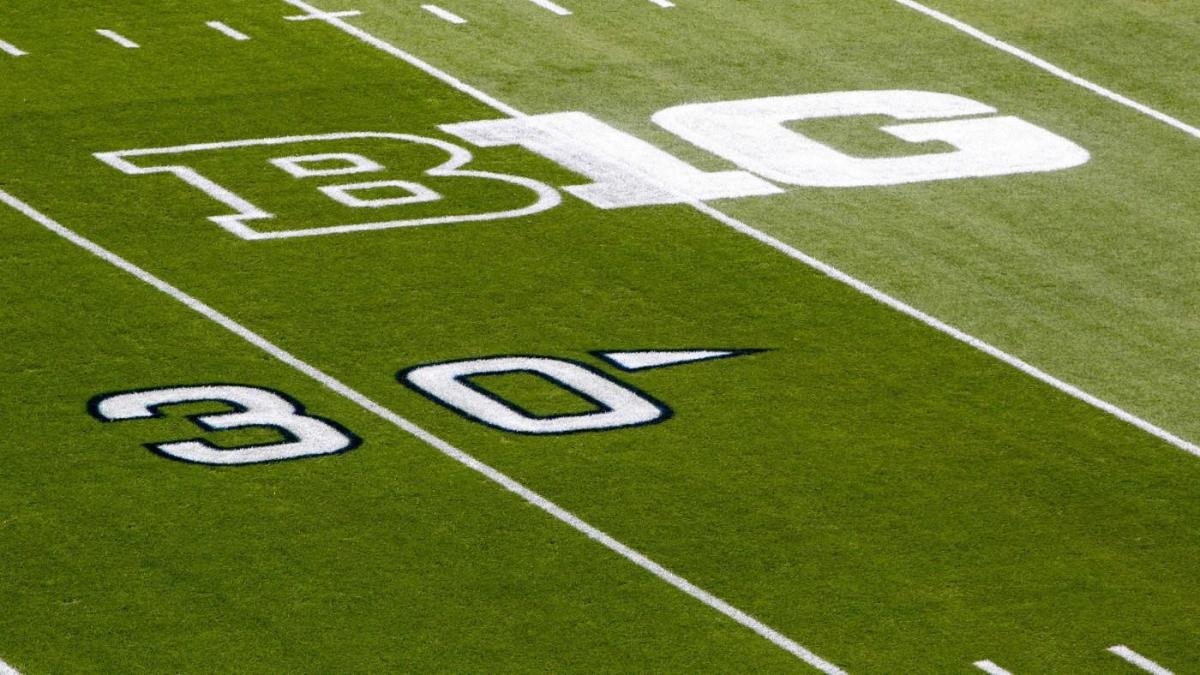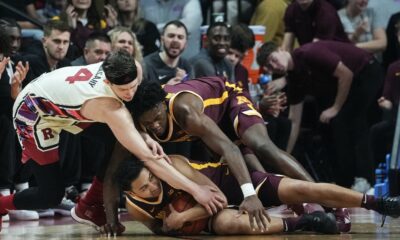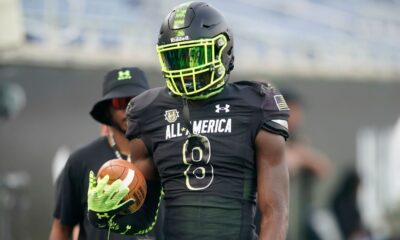
Sharing Big Ten Conference earnings with players is one of the list of requests recently made to the league by college football player advocacy group CBS Sports.
Sean Clifford of the Pennsylvania State Quarterback met with Jason Stahl, Managing Director of the College Football Players Association. CFBPA is a player advocacy group founded in 2021. Stahl is a former faculty member at the University of Minnesota.
The conference then led to sharing information with the Pennsylvania State University team.
Mr. Stahl said he had secretly met a Pennsylvania State University player on campus from July 7th to 14th.
Eventually, the news of the discussion reached Big Ten Commissioner Kevin Warren. Star provided a list of requests for CBS Sports, which he said went to Warren. They included enhanced medical care and a “percentage of player media rights income.”
CFBPA
Stahl said he and Warren had spoken on the phone for an hour on Thursday. In addition to players who receive a portion of their conference income from media rights, the request includes that the player is granted independent medical care and post-qualification “health protection” separate from school.
“We discussed all three requirements,” Stahl told CBS Sports. “The first two seemed to be very open to the move towards our position. The third request [regarding sharing revenue] I thought it would be sticky, but I thought it would be part of the conversation. “
Clifford confirmed the discussion on Friday.
“These three things are just the basis of what we want to do. In reality, we think more can happen,” Clifford said. Told ESPNFirst reported the meeting between the two on Friday.
Stahl said he was invited to CFBPA President Roxanne McRae for Big Ten Media Day in Indianapolis next week.
“The Big Ten Conference is consistently communicating and cooperating with student athletes,” Warren said in a statement. “We are in the process of formally establishing a Student Athletes Advisory Board to seek feedback from student athletes on the changing landscape of college sports. We will make student athletes in an outstandingly healthy state. As such, we continue to work with member institutions. A rounded experience that promotes and protects the mission of higher education, prioritizing excellence and completeness in both scholarship and athletics. “
With the imminent new Big Ten TV rights agreement, not only is there enough money to share with players, but such arrangements could even give Big Ten a competitive advantage over other conferences. I think.
“It’s not about Big Ten, it’s not about Pennsylvania State University, it’s about the entire athletics of the university in need of reform,” Stahl said.
Mr Stahl said his organization should not be characterized as a union. It is a membership-based player association. However, Stahl added that if there is no progress for Big Ten to voluntarily address the three demands, “we have the option of forming a union and trying to union the entire Big Ten.” ..
“We are not a union,” Stahl emphasized. “I had a great conversation with Kevin Warren. He was ready to talk to CFBPA about these three requirements. I’ll run out of that process before considering other ways.”
The conference is approaching the announcement of a new media rights agreement shared by 14 Big Ten Schools, which is reported to have the potential to exceed $ 1 billion annually. (16 when USC and UCLA joined in 2024.) When money and power are united around Big Ten and SEC, such a move becomes a game changer for all college athletics, not just the league. Probably.
Warren is an advocate of college athletes who have played college basketball and has experience as a former agent. His brother Morrison was one of Stanford’s first black soccer players.
According to sources, Big Ten AD has been discussing this concept at least tangentially for at least six months. However, it is not clear how much BigTen AD has looped in on the specific outlook for revenue sharing.
The term “collective bargaining” was not used in the list of requests, but it seems that it should be included in the revenue sharing discussion. Collective bargaining with athletes has long been debated as inevitable in college athletics in an era, including the benefits of NIL and freedom of transfer.
“It’s more important, it’s inevitable, is it different from what we’ve done in the last 25-30 years? … Get ahead of it,” said a source familiar with the discussion. Stated.
College athlete scholarships are limited to rooms, books, boards, tuition, attendance fees, and NIL benefits. Revenue sharing makes once stubborn amateur NCAA athletes more considered “employees” than ever before.
No figures were available as to what percentage of the big ten pot CFBPA would require. One source speculated that Big Ten could circumvent the Title IX law by distributing money through conference rooms rather than schools. In that sense, conference rooms are not necessarily federal-funded educational institutions covered by Title IX.
“Why do we need to share revenue with non-revenue athletes?” Said one source familiar with the debate.
Collective bargaining allowed both sides to discuss other issues, perhaps. This week’s NCAA announced that athletes can switch as many times as they like. The work may be discussed in a negotiation session in exchange for greater commitment from the player.















